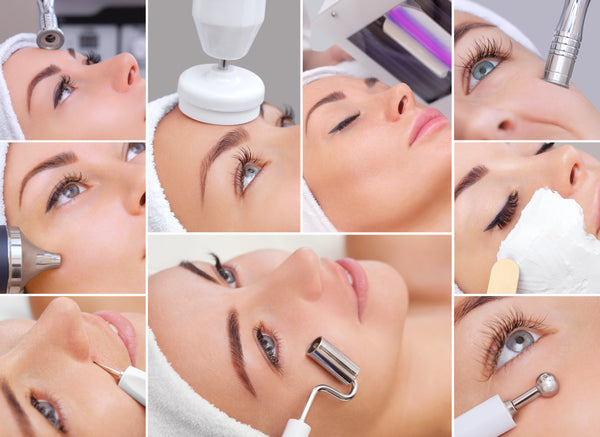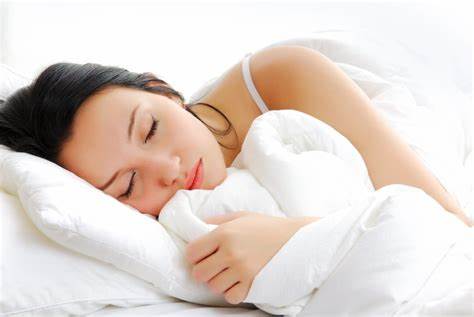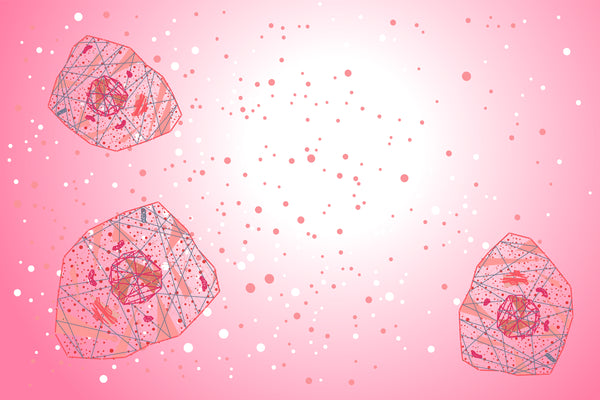We have all heard that sleep is essential for beautiful skin, but it is important to know why. Sleep is crucial for our bodies, including skin, to regenerate and repair during sleep cycles. We have what is called a circadian rhythm, a 24-hour period responsible for biological cycles. It is like an internal clock that regulates the wake and sleep cycles of the body. This internal clock is responsible for keeping the body’s hormone levels balanced. For example, melatonin is one hormone that increases at night signaling us to go to sleep. Continuous lack of sleep has been linked to aging, cancer, diabetes, obesity and immune and mood disorders. The medical community generally agrees that getting seven to nine hours of sleep a night is needed for the body to function at its optimal rate.
Stages of Sleep
There are several stages of sleep that cycle anywhere from four to six times during the night.
Stage 1 is often called the “introduction into sleep stage.” This beginning stage is where the eyes fight to stay open, brain activity slows down and muscles start to relax. This stage only lasts about one to ten minutes, and one can be easily awoken during this time.
Stage 2 lasts about 20 minutes and is called the “beginning of sleep stage.” Brain and muscle activity slow down further, and the heart rate and body temperature decrease.
Stages 3 and 4 is where skin sees the greatest benefit, known as the “slow wave sleep stage.” This is the most restorative sleep that begins around 35 minutes to 45 minutes after initially falling asleep. In this stage, the brain and muscle activity decrease dramatically. The body repairs muscles and tissues, stimulates growth and development with growth hormones, boosts immunity and builds energy.
Stage 5. After 90 minutes of sleep, rapid eye movement (REM) sleep occurs for about 10 minutes. The eyes move rapidly during REM. This is when dreaming occurs, and the brain is very active. The muscles are completely relaxed, but our heart rate and blood pressure increase to provide energy.
A clinical trial was done that associated chronic poor sleep quality with increased signs of intrinsic aging, diminished skin barrier function and lower satisfaction with appearance.1 Compromised sleep is seen as a stressor to the body, which can lead to several processes that affect the skin.
Hormones
Sleep helps regulate the body’s hormones; therefore, a lack of sleep sends critical hormones out of whack to cause a host of skin and overall health issues.
Cortisol. Also known as the stress hormone, cortisol is released in response to fear or stress. Levels of cortisol drop during sleep, allowing the skin and other organs to regenerate, and then are heightened in the morning. The body reacts in a flight or fight response to stress or a lack of sleep by triggering cortisol. An increase in cortisol can break down collagen and elastin, leading to wrinkles and sagging skin. When cortisol levels rise, it can increase oil production and inflammation, both of which are contributing factors to acne. High cortisol can also slow down the healing process, which is important for practitioners to know when performing more invasive procedures. If a client is not sleeping properly, the skin may not respond as well to treatments designed to create a wound-response in the skin. Insulin resistance can also be caused by an increase in cortisol, leading to illnesses such as obesity and type II diabetes. Insulin resistance is when the body does not move glucose efficiently from the blood into the cells. This can also show up on the skin such as acne, alopecia and hirsutism.
Human growth hormone (HGH). Another hormone that is affected by lack of sleep is HGH. This hormone is activated during stages three and four of the natural sleep cycle and is responsible for normal development of the skin. When the body isn’t fully rested, it doesn’t make as much HGH, resulting in harmful effects on the skin including an impaired barrier function. The role of the epidermis is to provide a barrier, keeping bad things out and letting good things in. A compromised epidermis can result in a lack of protection, leaving the skin open to irritants, microorganisms and other pollutants. Lack of sleep can also lead to dehydration, as the barrier is meant to hold water in and our body’s hydration levels balance during sleep.
Circulation

Proper circulation is needed for nourishment and detoxification, and a lack of sleep can slow it down. Blood flow in the circulatory system delivers oxygen and nutrients to cells. Oxygen is necessary to replenish tissues of the body including the skin. A lack of oxygen plays a role in poor wound-healing and leaves the skin looking dull and lifeless. When blood becomes stagnant, dark circles under the eyes may also appear. A decrease in blood circulation decreases antioxidants, which can lead to cellular breakdown and glycation. Antioxidants fight off free radicals also known as reactive oxygen species (ROS); these are reactive molecules that attack healthy cells and create damage. The body’s natural ability to fight free radicals is also decreased when there is a disruption to the natural circadian rhythm of the body. This leads to oxidative stress on the skin, can cause a breakdown of proteins including collagen and elastin and increases inflammation as your body works hard to fight off these destroying molecules.
Lymphatic Drainage
The lymphatic system is a vital component of the immune system and has three main functions: to maintain fluid balance by the removal of excess fluids from body tissues, absorb fats and transport them to blood and protect the body against disease. This system is responsible for eliminating toxins and waste from our bodies. The lymphatic system doesn’t have a pump like the circulatory system, so a lack of sleep combined with poor lifestyle choices, injuries or autoimmune disorders can result in an even slower lymphatic response. The human body has approximately 600-800 lymph nodes, with about one-third found in the face and neck alone. While we are sleeping, the lymphatic system works at its optimal capacity; therefore, it is slowed down when sleep is compromised, more so if one suffers from a chronic lack of sleep. Disruption of lymphatic flow can lead to a buildup of toxins and swelling in the skin. This can cause puffiness in the face, especially around the eyes where fluid can easily accumulate. The increase in toxins can also show on the surface of the skin as acne.
Nighttime Skin Care
Getting enough sleep is just the tip of the iceberg when it comes to caring for the skin. It is important to use a good skin care regimen to assist the skin in regeneration and repair. What is done internally and externally while sleeping determines the state of the skin when waking up.
Cleanse. First, cleansing the skin before bedtime is essential, even if no makeup is worn. The skin can be exposed to environmental pollutants throughout the day that can be detrimental to skin health.
Apply. After cleansing, the appropriate products should be used for the particular skin type and condition. Everyone can benefit from vitamin A, as it is known as a skin normalizer and helps to repair at night. Antioxidants and peptides also help to support new and healthy cell growth and fight inflammation.
Massage. When using topicals, massage or tapotement can help increase circulation.
Pull back. Keeping the hair pulled back out of the face will help to eliminate excess oils or hair products from potentially irritating the skin. This is especially important for those that suffer from acne.
Wash. Along the same lines, pillow cases should be cleaned frequently. We shed millions of dead skin cells a night, not to mention the oil that can accumulate and create irritation leading to inflammation and breakouts. No fabric softener tends to be the best for those prone to breakouts.
Buy. White cotton pillowcases are recommended for those prone to breakouts. On the other hand, silk pillowcases can be used to help prevent premature lines and wrinkles from forming.
Face up. The way we sleep can also affect the health of the skin. It is recommended to sleep face up with the head slightly elevated to keep blood flow moving throughout the face. This can be hard to get used to, but varying positions especially sleeping on the face may not only slow circulation but also create premature lines and wrinkles.
Humidify. The temperature of the room can also affect the skin. Most heaters expel dry air and can cause the skin to dry out. When in a dry climate, or if heat is used often, a humidifier should be used to fight the drying effects on the skin.
Get dark. Any light in the room can also influence melatonin and serotonin to disrupt sleep.
Eat well. What you eat before sleeping will affect the appearance of your skin. Eating more fruits and vegetables rich in water and vitamins will keep your body hydrated and deliver the nutrients where they are needed in the skin. Try to avoid eating foods high in sugar or loaded with carbohydrates at least three hours before sleeping. The rapid spike in insulin can lead to inflammation. Decrease the amount of alcohol or caffeine consumed, as they can cause disruptive sleep.
Make Small Changes
Making small changes in your sleeping habits along with getting the right amount of sleep can keep the skin looking youthful and vibrant. Sleeping right is not only good for the appearance but for the body as a whole. Now let’s get some beauty sleep.
References
 This article appeared in the June 2018 issue. Find more on this topic in the digital magazine.
This article appeared in the June 2018 issue. Find more on this topic in the digital magazine.





0 comments